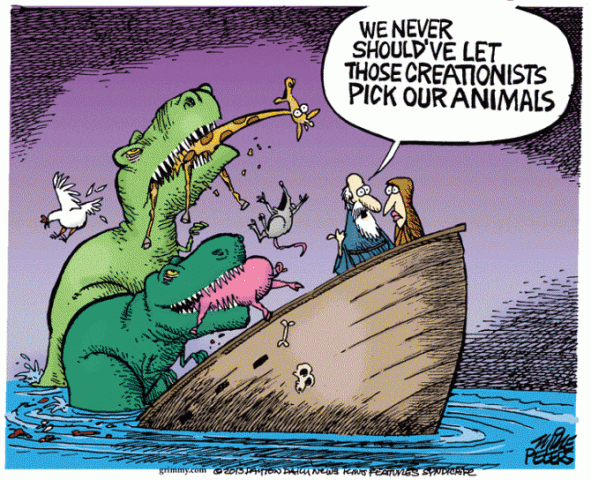
Recently, William Thornton, a semi-retired Southern Baptist pastor, wrote a post about the Ravi Zacharias scandal and the Billy Graham Rule (BGR). Zacharias, a darling in the Evangelical apologetic community, has been exposed as a sexual predator.
Regarding Zacharias, the New York Times reported:
The influential evangelist Ravi Zacharias, who died last spring, engaged in “sexting, unwanted touching, spiritual abuse, and rape,” according to a report released on Thursday by the global evangelical organization he founded.
After initially denying accounts of his misconduct, Ravi Zacharias International Ministries announced that an investigation had found credible evidence of sexual misconduct spanning many years and multiple continents.
The announcement was the result of an investigation by a Southeastern law firm, Miller & Martin, which RZIM hired in October to investigate accounts of sexual misconduct by Mr. Zacharias.
“We believe not only the women who made their allegations public but also additional women who had not previously made public allegations against Ravi but whose identities and stories were uncovered during the investigation,” the ministry’s board of directors said in a statement accompanying the report. “We are devastated by what the investigation has shown and are filled with sorrow for the women who were hurt by this terrible abuse.”
When Mr. Zacharias died of cancer in May at age 74, he was one of the most revered evangelists in the United States. Former Vice President Mike Pence spoke at his memorial service in Atlanta, calling him “a man of faith who could rightly handle the word of truth like few others in our time” and comparing him to Billy Graham and C.S. Lewis.
Though the report adds shocking new details, accounts of Mr. Zacharias’s sexual misconduct had arisen in recent years. In 2017, he settled a lawsuit with a Canadian couple whom he had accused of attempting to extort him over intimate text messages he had exchanged with the wife.
Then last fall, several months after Mr. Zacharias’s death, the magazine Christianity Today reported on allegations that Mr. Zacharias had groped and masturbated in front of several women who worked at two day spas he co-owned near his ministry’s headquarters in Alpharetta, Ga. After initially denying those claims, RZIM acknowledged in December that an interim report from Miller & Martin confirmed that he had engaged in “sexual misconduct.”
The full report paints a stark portrait of that misconduct. The law firm interviewed more than a dozen massage therapists who treated Mr. Zacharias. Five of them reported that he had touched or rubbed them inappropriately, and four said he would touch his own genitals or ask them to touch him. Eight said he would either start the massage completely nude or remove the draping sheets during the treatment.
….
The law firm also found a pattern of intimate text and email-based relationships with women. In reviewing his electronic devices, they found the phone numbers of more than 200 massage therapists and more than 200 selfies, some of them nudes, from much younger women. Mr. Zacharias also used the nonprofit ministry to financially support some of his long-term therapists. The report also reveals that he owned two apartments in Bangkok, where he spent 256 days between 2010 and 2014. One of his massage therapists stayed in the other apartment.
Mr. Zacharias said in 2017 that in 45 years of marriage, “I have never engaged in any inappropriate behavior of any kind.”
….
In 2014, Mr. Zacharias met a Canadian couple, Brad and Lori Anne Thompson, at a fund-raising luncheon in Ontario. They stayed in touch, and eventually Mr. Zacharias invited Ms. Thompson to correspond privately on BlackBerry Messenger. The evangelist was 30 years older than Ms. Thompson, and she saw him as a “spiritual father,” she has said. After she confided in him about her history of abuse and trauma, she has said, Mr. Zacharias began soliciting sexually explicit messages.
When Ms. Thompson told Mr. Zacharias that she needed to tell her husband about their relationship, Mr. Zacharias threatened suicide, according to leaked emails first published by the blogger Julie Anne Smith.
….
After a lawyer for the Thompsons approached Mr. Zacharias privately in 2017, he sued the couple, portraying them publicly as serial extortionists and saying that Ms. Thompson had sent him the explicit messages against his will. The suit ended in private mediation, and all parties signed a nondisclosure agreement.
RZIM’s board expressed regret on Thursday for its response to Ms. Thompson’s allegations. “It is with profound grief that we recognize that because we did not believe the Thompsons and both privately and publicly perpetuated a false narrative, they were slandered for years and their suffering was greatly prolonged and intensified,” it said in the statement accompanying the report.
Mr. Zacharias co-owned two day spas near RZIM headquarters between 2004 and 2015, an unusual venture for an evangelist but one he made no attempt to hide. At the grand opening of Jivan Wellness at a strip mall in 2009, speakers included the comedian Jeff Foxworthy; Sonny Perdue, then the governor of Georgia; and the pastor Johnny Hunt, who was the president of the Southern Baptist Convention at the time.
As they are wont to do, Evangelicals are busy removing Zacharias’ visage from the Mt. Apologetics Rushmore. Some self-righteous Evangelicals are even saying that Zacharias was never a True Christian® Which makes one wonder about the lack of discernment among Evangelical pastors. Thousands of pastors attended Zacharias’ apologetics conferences and read his books, yet not one of them “discerned” that he was a sexual predator. Even J.D. Hall, the editor of Protestia (Pulpit & Pen) — a site known for its muckraking reporting on Evangelical sexual peccadilloes and alleged heresy — failed to sniff out Zacharias’ perverse behavior.

As of today, only Zacharias’ son, Nathan, thinks he is innocent:
First, RZIM does not speak for me. They have formed their own opinion. But it does not dictate mine. I do not agree with them for legitimate reasons. I will not, however, debate those differences publicly.
…Regarding some specific individuals who were once my colleagues, how “brave” you are to aggressively take on a man who can’t even defend himself, as well as attack his grieving family who is far more blindsided and hurt by this situation than you can ever be. And how “righteous” you are to think that we must continually pile on our punishment AFTER he has already faced the ultimate judge.
…God chose to spare Dad from all this by calling him home when he did. But how “virtuous” of you to insist that you hand out the relentless punishment and humiliation that God saw no place for in dad’s lifetime.
Even *if* these allegations are true, there is no doubt that God actively blessed my dad and did so right up until he passed. His impact was only getting greater. So what these individuals are saying – along with any person or organization that wants to cancel my dad – is that God was wrong to do so, so we must now correct God’s blessing/mistake by erasing my dad and his voice. To that I say, “That’s a bold strategy, Cotton, let’s see if it pays off for him.”
Finally and most importantly, nothing could change how much I love my dad and miss him. I am still proud to be his son.
Now back to Thornton’s post. Thornton used the Zacharias scandal to talk about how male pastors should handle their interactions with women — especially privately. Thornton also discussed what is commonly called in Evangelical circles the Billy Graham Rule (BGR).
Here’s an excerpt from Thornton’s post:
One aspect of it that has arisen is that the BG Rule, the man of God (pastor, evangelist, or other male Christian figure) will not be alone with any woman not his wife, Billy Graham and his team establishing that practice early on in his evangelistic ministry.
The rule has been adopted by many of the brethren (it was recommended to me as a ministerial standard when I was ordained decades ago) and is held up as a shield against the wiles of the devil and all those devilish women who would “take a pastor down.” The phrase with quotes is the way I’ve often heard it described.
If a brother wants to pattern his relationships and interactions with females in this manner, he may do so. But he might be apprised that such is highly sexist, presumes all women to be potential steamy seductresses, and makes it appear that he, the pillar of male rectitude, is powerless to resist; thus, the hard and fast rule about ever being with any woman alone other than his beloved wife.
Zacharias, as you probably know, was a BGR follower, except when he needed those medical massages. One can see how that played out with numerous victims, accusations of rape in some cases, and a lifetime of ministry totally undermined by his own decisions and choices.
I’m curious if the rule which is in its seventh decade now, is still applicable, useful and practical. The changes since the 1940s are considerable: females in the workplace, including church staffs; the manner business is conducted; the ubiquitous use of social media for relationships and contacts.
I was a single staff guy most of my ministry. If my church had an administrative assistant, always a woman, it was impossible to always have a third person at the church at all times. It’s also a brazen and thoughtless insult to all women to be treated thus.
In 2018, I wrote a post titled, The Absurdity of the Billy Graham-Mike Pence Rule.
Here’s what I had to say on the matter:
Embedded deep into the thinking of Evangelical pastors is the notion that women to whom they are not married are dangerous creatures who must be kept at a distance, lest they tempt men of God to commit sexual sin. As a young ministerial student, I was taught that there were Jezebels in every church, and that I must never, ever allow myself to be alone with any woman who was not my wife. According to my professors and chapel speakers, there would always be women lurking in the shadows of the steeple, ready and willing to “steal” my sexual purity. Men, including pastors, were, by nature, weak-kneed, visually stimulated horn dogs. Allow the doors of your office or study to be shut with you and a woman alone, and, why, anything could happen! This kind of thinking, of course, teaches men a warped view of women and human sexuality. While I agree that humans are sexual beings — a trait necessary for our species’ propagation — it does not follow that every time two people of the opposite sex are alone with each other, sexual intercourse is a real and distinct possibility. Common sense tells us otherwise.
This view of women and human sexuality found its nexus with Fundamentalist Baptist evangelist Billy Graham. Graham had three rules he lived by when it came to women who were not his wife. Graham would not travel alone with a woman, meet alone with a woman, or eat alone with a woman. These rules, over time, were called “The Billy Graham Rules.” While Graham was viewed as a liberal by Independent Fundamentalist Baptist (IFB) preachers, his three rules were taught and preached in IFB churches and colleges alike. Simply put, stay away from women who aren’t your wife. Danger, Will Robinson, Danger! Abstain from the very appearance of evil, the Bible says. Eating a meal with a woman who is not your wife, offering her a ride in your car, or counseling her alone with the door closed, all give forth the appearance of evil. I knew of some pastors who wouldn’t even counsel female church members out of fear that their ministry could be compromised.
Most non-Evangelicals had never heard of the “Billy Graham Rule” until Vice President Mike Pence let it be known that he, too, avoided being alone with any woman who was not his wife. Moderns were astounded by the Vice President’s Puritanical view of women, but to my ears his words were what I had heard over and over again as an Evangelical pastor.
….
According to Ellis [Can Men and Women be Friends], all men should live according to “Billy Graham-Mike Pence Rule.” I say all, and not just married men, because Ellis, who describes himself as a conservative Christian, likely believes that it is a sin for unmarrieds to have sex. Thus, not only should married men abstain from being alone with women who are not their wives, so should unmarried men. Women, for married and unmarried men alike, are the problem. If married men want to keep themselves morally pure, then they must never, ever put themselves in positions where they are alone with women. For married men, the wife of their youth awaits, legs spread wide, ready and willing to satisfy their sexual needs. Unmarried men have no such fire extinguisher awaiting them — the Apostle Paul said it is better to marry than to burn — yet they, too, are implored to avoid being alone with the opposite sex. So what are these young men to do? Many of them, if they marry at all, do not marry until their late twenties. This means that they must wrestle with unsatisfied raging hormones for twelve to fifteen years. And remember, masturbation — lustful self-gratification that leads to homosexuality — is verboten too. (Please read Good Baptist Boys Don’t Masturbate, Oh Yes, They Do!)
This kind of thinking breeds immature, juvenile men; men who are weak; men who are not in control of their sexuality; men who see women primarily as objects of sexual gratification. Ellis, Graham, and Pence would likely object to my characterization of their beliefs, but it seems clear, at least to me, that women are treated as dangerous, seductive beings who must be avoided lest being alone with them leads to intercourse on office and study floors. This kind of thinking objectifies women, turning them into chattel used for male sexual gratification. Since the inspired, inerrant, infallible Word of God condemns all sexual behavior except married heterosexual vaginal intercourse, (preferably in the missionary position, and primarily for human propagation), any relationship or circumstance that could, even remotely, lead to moral compromise must be resolutely avoided. (A separate discussion is whether consensual adult sex with someone other than your wife or sex between unmarrieds is necessarily “wrong.”)
As I have stated time and again on this blog, Evangelical men need to grow up and own their sexuality. If they can’t control themselves when around physically and sexually attract women, the fault is theirs. Plenty of men are around women publicly and privately, yet they, somehow, keep themselves from having sex with them. These men have learned how to control their thoughts and behaviors. I have viewed countless women whom I have found attractive. My wife and I, now that we no longer concern ourselves with thoughts of God, judgment, and hell, are free to say to the other, that’s an attractive man/woman. Both of us have found it interesting the type of people the other is attracted to. Men I thought Polly would consider hot often elicit a meh from her — she really likes gay guys. Similarly, the kind of woman Polly thinks I would be attracted to often elicits a shrug from me. It’s liberating to be able to express my thoughts, interests, and desires without worrying that it could lead to adultery — a sin, according to the B-i-b-l-e, that lands offenders in the Lake of Fire.
While I generally agree with Thornton’s sentiments, many of the Southern Baptist pastors who commented on his post didn’t.
The BGR isn’t just useful because there might be certain unholy women after the man of God. It also helps the man of God [pastor, elder, brother] avoid his own internal temptations to act unbecomingly with a younger woman.
More often than not, at least lately, I hear of the minister grooming the younger lady.
The BGR helps him by helping him “flee” from lusts and sexual immorality.
Ah yes, Baptist preachers need to watch out for those younger women who are out to seduce and fuck them. These “men of God” must battle their “internal temptation” to give in to these temptations or take sexual advantage of young women who come to them for help. (For the record, I only had one woman try to seduce me in the twenty-five years I spent pastoring Evangelical churches.)
If you can stomach it, take a gander at the rest of the comments. My conclusion? If you are a young woman, I advise you not to be in the same zip code as a Southern Baptist pastor. These horn dogs can’t be trusted around women.
Thornton, to his credit, took issue with such comments:
Makes all the females in your church to be latent seductresses. Care to find out which is the greater problem? pastors preying on women on their church or women who seduce or falsely accuse their pastor? When men, especially clergy, discuss this, why does it end up being so degrading and demeaning to women in general and women in the church specifically?
We don’t have a huge scandal in the SBC of women falsely accusing their humble and selfless pastors but of pastors abusing women and children.
The absurdity and lack of awareness of some of these comments is astonishing.
And to that, this atheist preacher says, AMEN!
Bruce Gerencser, 66, lives in rural Northwest Ohio with his wife of 45 years. He and his wife have six grown children and thirteen grandchildren. Bruce pastored Evangelical churches for twenty-five years in Ohio, Texas, and Michigan. Bruce left the ministry in 2005, and in 2008 he left Christianity. Bruce is now a humanist and an atheist.
Connect with me on social media:
Your comments are welcome and appreciated. All first-time comments are moderated. Please read the commenting rules before commenting.
You can email Bruce via the Contact Form.









